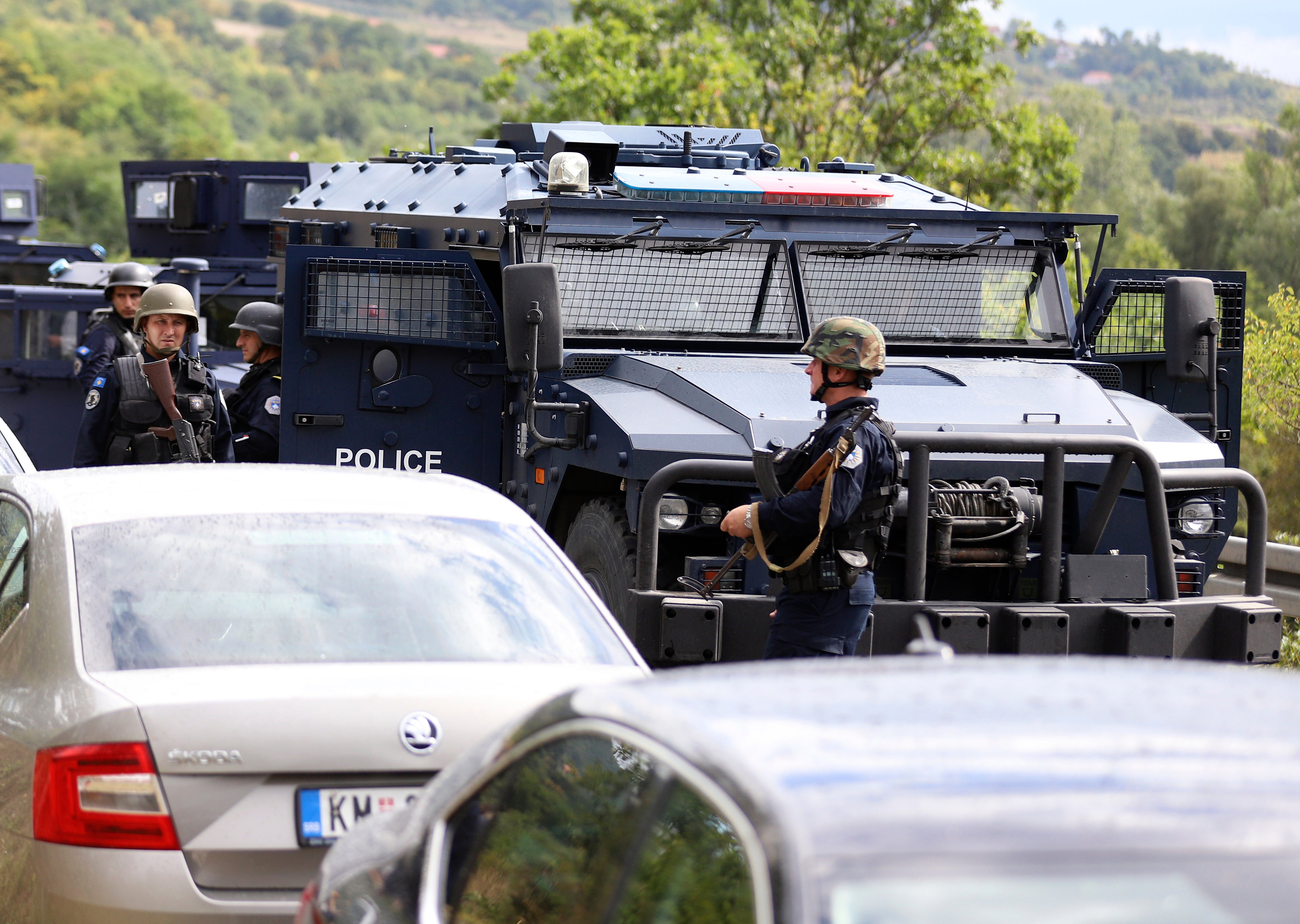Kosovo deploys police, Serbs protest amid border tension
Tensions have soared on the border between Kosovo and Serbia as Pristina authorities started implementing a rule to remove Serbian license plates from cars entering Kosovo

Your support helps us to tell the story
From reproductive rights to climate change to Big Tech, The Independent is on the ground when the story is developing. Whether it's investigating the financials of Elon Musk's pro-Trump PAC or producing our latest documentary, 'The A Word', which shines a light on the American women fighting for reproductive rights, we know how important it is to parse out the facts from the messaging.
At such a critical moment in US history, we need reporters on the ground. Your donation allows us to keep sending journalists to speak to both sides of the story.
The Independent is trusted by Americans across the entire political spectrum. And unlike many other quality news outlets, we choose not to lock Americans out of our reporting and analysis with paywalls. We believe quality journalism should be available to everyone, paid for by those who can afford it.
Your support makes all the difference.Tensions soared Monday at the border between Kosovo and Serbia as Kosovo deployed additional police to implement a rule to remove Serbian license plates from cars entering Kosovo, while Serbs protested the move.
Kosovo special police with armored vehicles were sent to the border as hundreds of Kosovo Serbs reportedly drove to the border in their cars and trucks, blocking a road leading to one of the crossing points in protest.
Serbia’s police have for years been taking off registration plates from Kosovo-registered cars entering Serbia, and the latest move by Kosovo authorities appears to be a tit-for-tat move.
Serbia doesn't recognize its former province of Kosovo as a separate state and considers the mutual border only as an “administrative” and temporary boundary.
Kosovo officials said that as of Monday, the license plates issued in Serbia will be replaced with temporary ones and that the additional police were deployed to implement the “reciprocity” action.
Kosovo Prime Minister Albin Kurti said that Serbia was the first to impose temporary license plates. He added that Kosovo’s move doesn't limit freedom of movement and isn't directed against Serbs.
“We didn’t ask for the temporary license plates, but they were imposed by the other party,” he said. “As long as our citizens must pay for the plates when they enter Serbia, they will be used on entry into Kosovo as well.”
European Commission spokesman Peter Stano urged both Kosovo and Serbia to “immediately, without any delay” exercise restraint and refrain from unilateral actions.
“Freedom of movement is one of the cornerstones of the European Union and as such we expect both Kosovo and Serbia to promote freedom of movement in the region,” he said in Brussels.
The two sides agreed in European Union-mediated talks in 2014 to allow free traffic. However, Kosovo officials said the deal has expired and only proper Kosovo symbols are now valid in the territory.
In Belgrade Serbian President Aleksandar Vucic called an emergency meeting for Tuesday of the state national security council as Serb officials in Kosovo urged help from Belgrade.
Top Kosovo Serb official Goran Rakic described the latest move as “a direct threat” against Serbs living in Kosovo, saying they have informed EU mediator Miroslav Lajcak and other international officials about the new developments.
“This (protest) is a reaction by the people who are worried about their future, their children and their families,” said Rakic. “People are anxious and frightened.”
Thousands of people were killed and over a million were left homeless after a 1998-1999 bloody crackdown by Serbian troops against Kosovo Albanian separatists. The war ended only after a NATO intervention.
___
Llazar Semini in Tirana, Albania, and Jovana Gec in Belgrade contributed to this report.